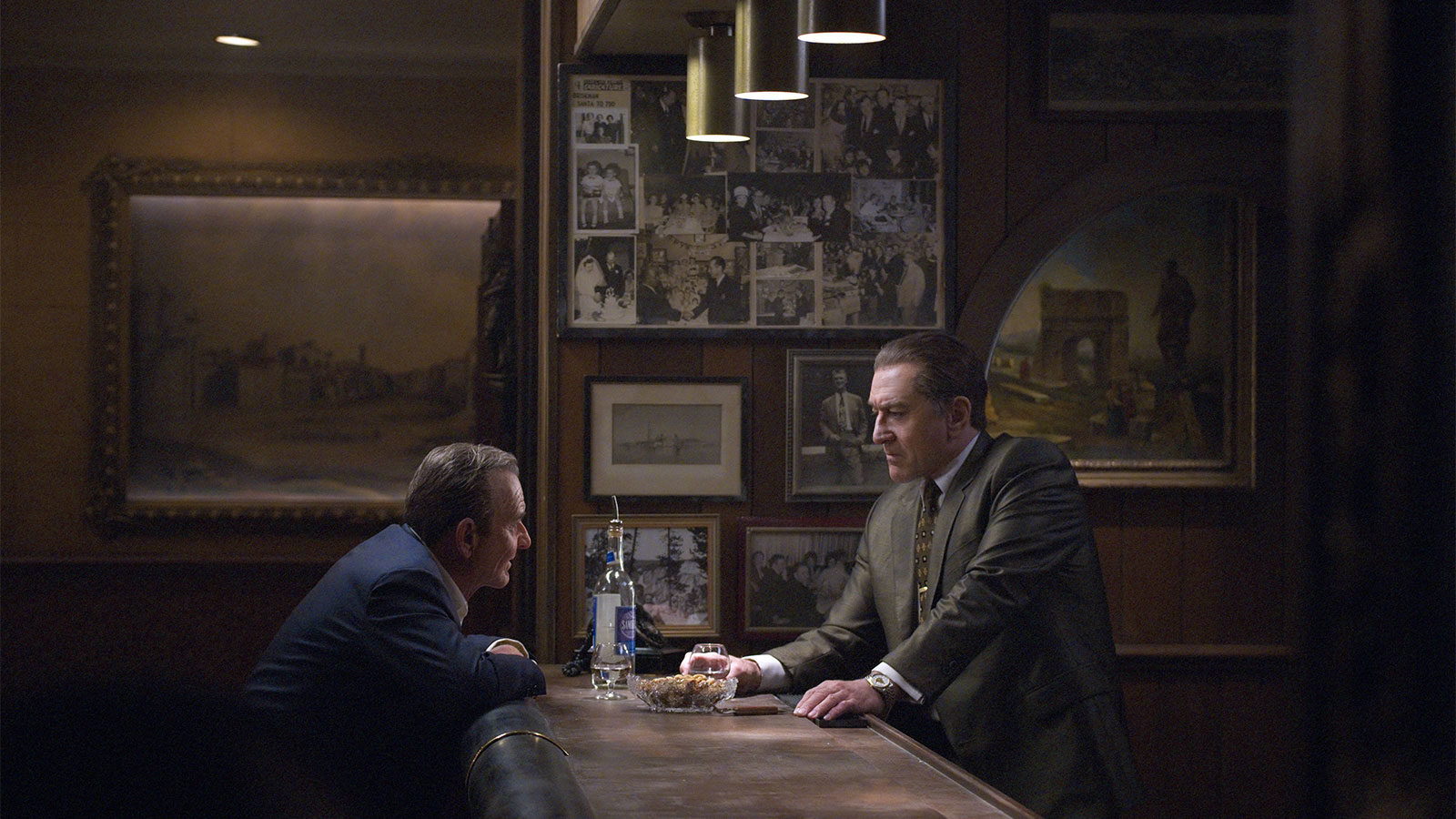Jason Adams reporting on the opening night of the New York Film Festival

A camera stalks through the hallways of what we typically call an Old Folks Home. Old Folks. Ever think about that phrase? Disarming in its literal folksiness -- it's in truth a place where the day breaks are taken to pick out caskets. So the camera tracks through the Old Folks Home like so many cameras have tracked through Martin Scorsese's so many movies -- through the nightclubs in Goodfellas and the trading rooms and offices in The Wolf of Wall Street, the muddy mountain sides of Silence. We have walked with this man's camera through space and time together and now here we are, all of us Old Folks, stalking one another down antiseptic corridors on shaky wheels.
The camera comes to rest on Robert De Niro, as it must. De Niro looks old -- older than the actor looks right now in real life, and older than his character Frank Sheeran will look for the majority of The Irishman thanks to the (occasionally spotty) state of the art technology that will pinken his cheeks and taut up his neck flesh as the tale he starts to tell us winds us back, way back in time...

Across decades and crimes, wars international and local, and the fates written across every man's face. Literally that is, as Scorsese keeps pausing the movie to tell us how a random man will die -- often violently, sometimes not, but always off there in the distance, a cancerous speck on the horizon looming ever larger.
This is not there and back again -- like the road-trip that frames Sheeran's story and like that too supple skin, up and down and back to front, time elasticizes. It slows, and snaps. There are a lot of cigarette breaks on the path to where we're going. Time's on everybody's mind -- it's been one of the big subjects of conversation ever since The Irishman's runtime of two-hundred-plus minutes was announced -- for the record this thing flies, until it purposefully doesn't want to fly anymore. But Time in turn, with its myriad small betrayals -- that goddamn Bursitis -- reveals itself to be the most explicit subject of Scorsese's film.
When we first flash-back to a somewhat youthful and very much rosy-cheeked Sheeran, a spring in his step, Scorsese simply crosses the road -- the Old Folks look across the street and there they are, younger things. There have been a lot of streets, mean or otherwise, in Scorsese movies, but the expressways of The Irishman tie knots around it; somebody's always driving some place, and the conversations and decisions made in these cars form the shapes of the lives therein. During one pivotal ride we spend so long listening to the men talk about a fish that the fish clearly stops being just a fish -- it becomes The Fish, and we the ferrymen riding along the river just above it, to and fro our fates.

In other words The Irishman is an All American epic that gains its import from its accumulation of seconds and minutes and years -- those tracking shots turned to myth, and we, a country of endless highways stretched end to end, always ending somewhere, on some face. Those roads wind on and tighten, carving scars and deep crags across its folks, older by the minute -- stone quarries, canyons, deeper every day, as the rivers trickle and come to a stop. It's about learning who a person is by cutting off their exits -- all the Copacabanas and all of the gin joints and all of the movies in the world, every possibility, and it all comes down to this. An old man sitting alone telling stories to a blank screen before him, with the door half cracked.